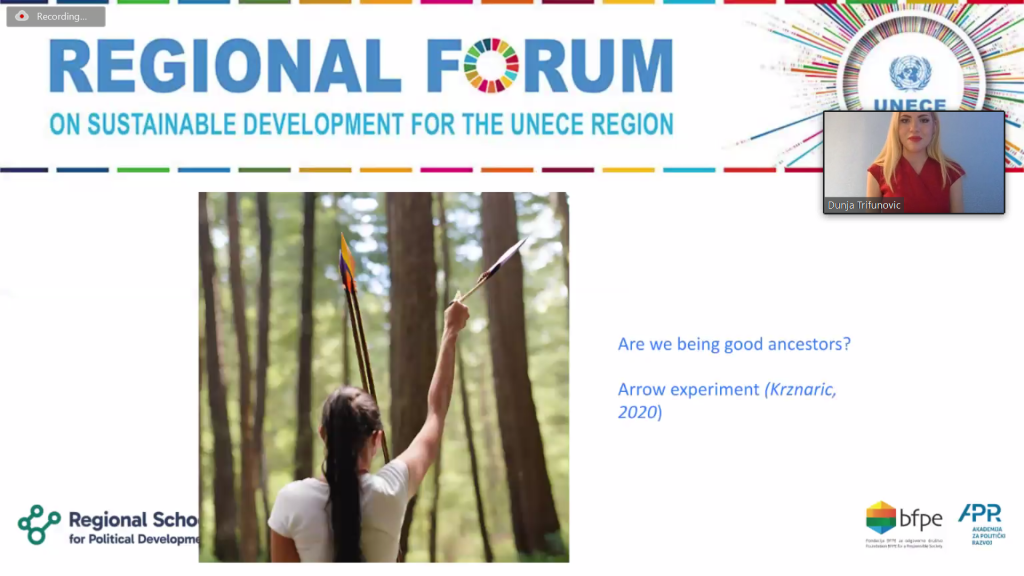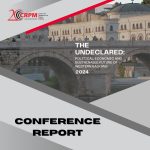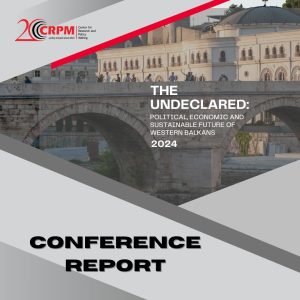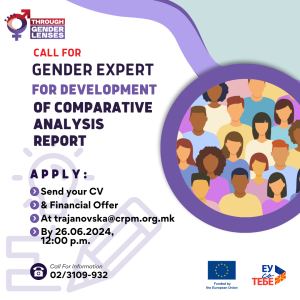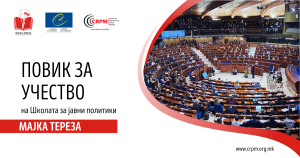On March 13th, from 13:15 to 15:00 CET, the Center for Research and Policy Making, in cooperation with the Academy for Political Development and the BFPE Foundation, organized a side-event for the 2024 UNECE Regional Forum on Sustainable Development.
The event, titled “Empowering Youth for Sustainable Futures: Sustainable Development,” contributed to the discussions and outcomes of the Forum. It provided a platform for the exchange of ideas and perspectives among youth, as well as showcasing best practices to prepare and motivate them to engage in meaningful dialogues with stakeholders at the local and national levels. Essentially, our goal with this event was to support youth in becoming more active, knowledgeable, and responsible, while encouraging them to take the first step toward positive change in our societies. We positioned youth as the most critical link between the present and a better future, emphasizing the importance of including and valuing their input in the policy-making process.
In her welcoming speech, the moderator Biljana Matevska from CRPM highlighted that Southeast European countries have neglected the green agenda in the face of multiple crises, with this issue inadequately addressed in major national and local policies. She also emphasized the concerning low level of youth participation in policymaking, presenting an additional challenge that needed to be addressed. Motivated by this context and driven by collective efforts and high enthusiasm, the Regional School for Political Development (RSPD) was established to support youth in becoming more active and engaged in the development of sustainable policies. During her speech, she introduced the distinguished speakers and initiators of the RSPD: Ivana Novoselec, Director of the Academy for Political Development from Croatia; Svetlana Stefanović, Director of the Foundation BFPE from Serbia; and Zidas Daskalovski, President of the Center for Research and Policy Making from Macedonia.
At the beginning of her address, Ivana Novoselac highlighted the prevailing conditions of low systemic education for young people about democratic processes, politics, and public policies. She noted the simultaneous low levels of trust in institutions and the disintegration of youth involvement in politics, particularly evident in their declining participation in elections. Motivated by these challenges, and recognizing that green policies and environmental issues have the potential to reengage young people in the political arena, Novoselac emphasized the shared idea among her colleagues to create a platform for exchange aimed at strengthening youth cooperation in the region. This vision led to the establishment of the RSPD. Novoselac also outlined the goals and future activities of the school, including the development of content, materials, and the organization of seminars and exchange visits in the EU.
The second speaker, Zhidas Daskalovski, focused on the prevalent apathy among the youth. He highlighted their lack of engagement in voting during elections and their limited involvement in public policy-making processes. Daskalovski emphasized that this is a contemporary issue not only in the region but also in many developed democratic countries facing challenges in engaging the youth. He underlined the importance of youth involvement, stating that it is crucial for the development of better public policies which is for the sake of the better of our societies. As a good practice, Daskalovski referred to the efforts made by his team and the colleagues organizing this event to strengthen the capacities of the youth and create new leaders who will drive the processes in the right direction. As an example, he mentioned the Mother Teresa School of Public Policy, where young leaders from each generation take significant political and societal positions. However, Daskalovski also acknowledged that there are youth who, despite having potential, choose not to utilize it. That is why we need to continue our efforts and initiate non-formal platforms for political education of youth.
The third speaker, Svetlana Stefanović, stressed that advocacy and lobbying serve as powerful instruments in implementation of the 2030 Agenda objectives. She emphasized the essential nexus between advocacy and youth engagement, highlighting the necessity of establishing environments wherein young individuals are not only actively involved but also respected and supported in shaping their destinies. Stefanović underlined the indispensable role of youth innovation, passion, and determination in propelling the transformative agenda of sustainable development. She emphasized the importance of exploring existing mechanisms and leveraging them for advocacy and lobbying purposes. Additionally, Stefanović addressed the significance of addressing structural barriers and fostering intergenerational dialogue and collaboration, presenting opportunities for meaningful advancement towards achieving shared goals.
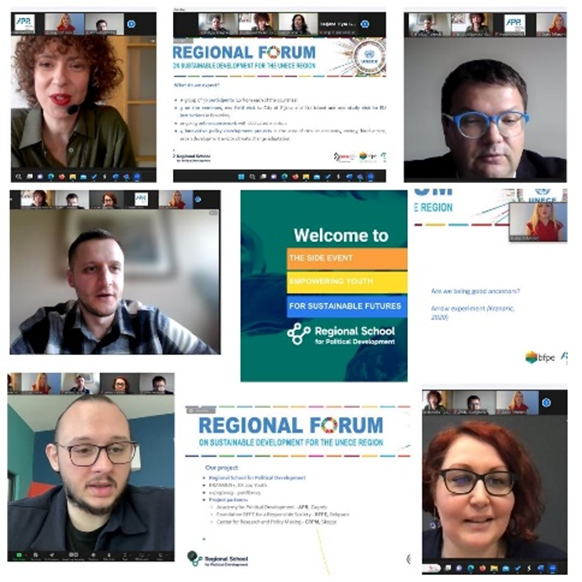
In the second session, dedicated to youth activists from Macedonia, Serbia, and Croatia, the moderator Kristijan Trajkovski emphasized the significance of listening to the voices of young people. He highlighted the importance of this session, which focuses on youth and their crucial role in initiating change and progress within our societies. Trajkovski expressed his delight in introducing three young activists from Serbia (Dunja Trifunovic), Croatia (Dorotea Strelec), and Macedonia (Art Spahiu) who have joined as speakers for the session. He outlined the topics they will cover, including discussions on green policies, the influence of youth on policymaking, their involvement in initiatives or policy changes, and the challenges they face at the local or national level.
After the second session, there was a Q&A session where we have discussed the importance of mutual efforts in build capacities for tackling climate change that is threating all living beings in every existing eco systems. We concluded that maybe we are the last generation that can stop climate change but young people need environment where can meaningfully contribute to creation of better public policies. With support of youth activism, empowering youth with knowledge, we can make change in our societies. At the end it was concluded that the Regional School for Political Development have potential for meaningful impact on future leaders in the region and will encourage youth to be active, participate and advocate for policy changes, and empower them to contribute toward achieving the SDGs and the 2030 Agenda.
Agenda of the side-event “Empowering Youth for Sustainable Futures: Sustainable Development

